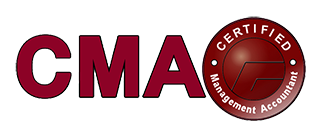
Members of CMA Philippines should behave ethically. A commitment to ethical professional practice includes: overarching principles that express a CMA’s values, and the standards that guide a CMA’s conduct.
Principles
CMA Philippines’ overarching ethical principles include: Honesty, Fairness, Objectivity, and Responsibility. All CMAs shall act in accordance with these principles and shall encourage others within their organizations to adhere to them.
Standards
A CMA’s failure to comply with the following standards may result in disciplinary action including disbarment from membership.
Competence
Each member has a responsibility to:
- Maintain an appropriate level of professional expertise by continually developing knowledge and skills.
- Perform professional duties in accordance with relevant laws, regulations, and technical standards.
- Provide decision support and business analysis information and recommendations that are accurate, clear, concise, and timely.
- Recognize and communicate professional limitations or other constraints that would preclude responsible judgment or successful performance of an activity.
Confidentiality
Each member has a responsibility to:
- Keep information confidential except when disclosure is authorized or legally required.
- Inform all relevant parties regarding appropriate use of confidential information.
- Monitor subordinates’ activities to ensure compliance.
- Refrain from using confidential information for unethical or illegal advantage.
Integrity
Each member has a responsibility to:
- Mitigate actual conflicts of interest.
- Regularly communicate with business associates to avoid apparent conflicts of interest.
- Advise all parties of any potential conflicts.
- Refrain from engaging in any conduct that would prejudice carrying out duties ethically.
- Abstain from engaging in or supporting any activity that might discredit the profession.
Credibility
Each member has a responsibility to:
- Communicate information fairly and objectively.
- Disclose ah relevant information that could reasonably be expected to influence an intended user’s understanding of the reports, analyses or recommendations.
- Disclose delays or deficiencies in information, timeliness, processing, or internal controls in conformance with organization policy and/or applicable law.
Resolution of Ethical Conflict
In applying the Standards of Ethical Professional Practice, you may encounter problems identifying unethical behavior or resolving an ethical conflict. When faced with ethical issues you should follow your organization’s established policies on the resolution of such conflict. If these policies do not resolve the ethical conflict, you should consider the following courses of action:
- Discuss the issue with your immediate supervisor except when it appears that the supervisor is involved. In that case, present the issue to the next level.
- If you cannot achieve a satisfactory resolution, submit the issue to the next management level. If your immediate superior is the chief executive officer or equivalent, the acceptable reviewing authority may be a group such as the audit committee, executive committee, board of directors, board of trustees, or owners. Contact with levels above the immediate supervisor should be initiated only with your superior’s knowledge, assuming he or she is not involved. Communication of such problems to authorities or individuals not employed or engaged by the organization is not considered appropriate, unless you believe there is a clear violation of the law.
- Clarify relevant ethical issues by initiating a confidential discussion with a CMA Philippines Ethics Committee Representative or other impartial advisor to obtain a better understanding of possible courses of action.
- Consult your own attorney as to legal obligations and rights concerning the ethical conflict.
